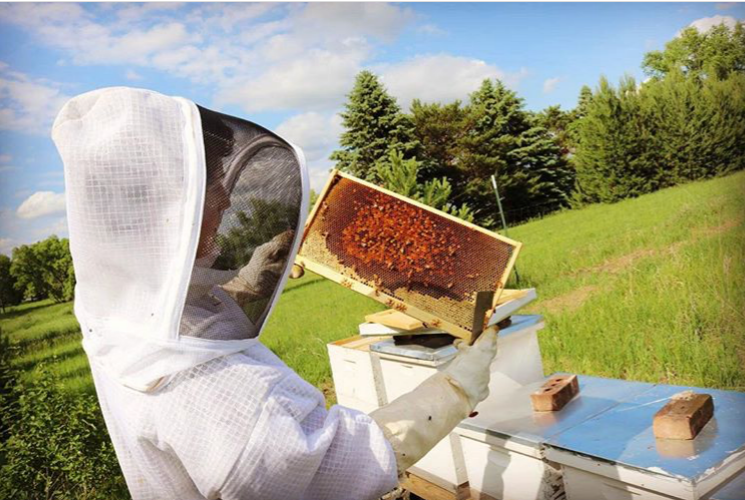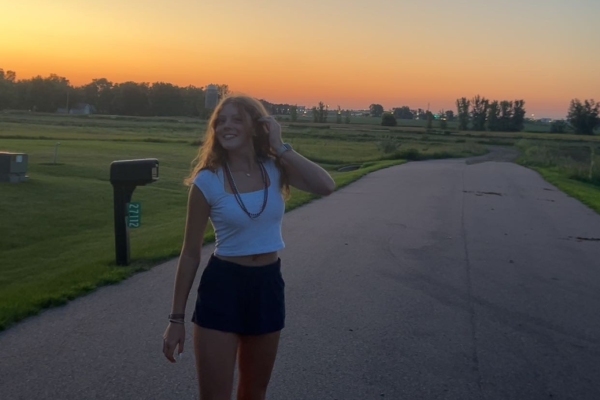A young beekeeper
Photo provided by Joseph Stangeland
Stangeland taking care of his bees.
February 5, 2019
As teenagers, we join clubs, work, play sports and volunteer, all while trying to stay on top of our school work. Amongst all of this, it can be hard to find what we are passionate about. For junior Joseph Stangeland, he was fortunate to find his passion before entering high school.
Stangeland has owned bees for over three years. He first became interested as an eighth grader by doing research and watching videos. This interest quickly blossomed until he bought two hives the following summer.
“It is recommended that you start with two hives so you can compare and contrast them,” said Stangeland. “I let them build up that summer and they both got strong and went into winter. When spring came around, both hives were alive.”
That spring, Stangeland purchased two more hives and split one of his previous ones, making five hives in total. He started to harvest the raw honey, filter out the wax and bottle the honey to be sold. By the end of the summer, he harvested around 120 pounds of honey from one of his hives.
Going into last winter, Stangeland had three hives, but as the winter months dragged on, the hives died one by one. This led Stangeland to talk to local beekeepers and to Dr. Jonathan Lundgren, who formerly worked for the USDA. Not too far from Stangeland’s farm, Dr. Lundgren had 100 hives, which all died that winter as well.
Spring of 2018, Stangeland had to rebuild. He still had his equipment and comb so he purchased nine packages of bees and watched them form their hives. While some hives had their challenges throughout the spring and summer, Stangeland currently has seven hives going strong. He hopes to get them through the winter safely, as beekeepers typically lose around 30 percent of their colonies during the winter.
“I don’t do much to help them besides feed them sugar water, which is their food for the winter, and provide them with a windbreak,” said Stangeland. “The cold is not what kills bees in the winter, it’s moisture from a poorly ventilated hive or hunger.”
Stangeland is going into his fourth summer with bees, and while it takes time and effort, he enjoys every minute of it.
“My favorite part about having bees is the learning experiences about them and how it transfers over to our life, not only by them doing pollination but their social levels in the hive and how they interact,” said Stangeland.











Will Howes • Feb 5, 2019 at 12:24 pm
Seinfeld would bee proud